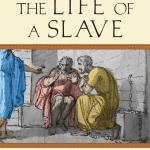Nicholas Perrin
The Kingdom of God: A Biblical Theology
(Biblical Theology for Life; ed. Jonathan Lunde)
Grand Rapids, MI: Zondervan, 2019.
Available at Zondervan and Koorong.
Nick Perrin, new president of Trinity International University, has written a great book on the kingdom of God, which includes a very helpful biblical exposition of the theme of God’s kingdom in Scripture with a mind for relevance on what it means today.
Best quote from the book is when Perrin indicates how central the kingdom of God was for Jesus:
When the Galilean began his ministry some two thousand years ago, he began by preaching the kingdom of God (Matt. 4:17). In his departing words to his disciples as the risen Lord, he is again talking about the kingdom (Acts 1:6-8). And in between these inaugural and climactic events, we have a plethora of parables, sayings, and enacted dramas all explicitly or implicitly relating to the kingdom. The kingdom of God was not simply at the heart of Jesu’s agenda; it was his agenda (p. 25).
Also, good exposition of what the kingdom is and is not:
The kingdom is not a social order (though a new social order is a sign of the kingdom’s arrival); nor is it a fellowship of those who experience God in a certain way (though a new experience of God also indicates the kingdom’s arrival); nor is the kingdom a community of those expecting the imminent end of time-space reality (though, again, an eschatologically expectant community is a presenting symptom of a kingdom that has come). Instead, the kingdom belongs to those who by faith identify themselves with the person and cause of Jesus – no matter the cost Everything rises and falls on Jesus Christ and our response to him as he has been revealed (pp. 33-34).
I also like how Perrin presents a good summary of Jews feeling or thinking of themselves as “still-in-exile”:
When Jesus appeared, preaching the good news of the kingdom of God, he was providing his own answer to this question [about Israel’s plight]. In fact it was an answer that was in many respects like the story shared across Judaism. In the distant, past, Israel had hopes of occupying the land, keeping the law, and sitting under the leadership of David’s seed line. But when Israel had squandered its elective privileges, broken its covenant with Yahweh, and been forced as captives into exile. Eventually, Yahweh brought Israel out of geographical exile, but this only presaged the still-future moment when the eschatological promises of the prophets would be more fully cashed out. Especially with ten of Israel’s tribes still unaccounted for, there was far too much still wrong with the status quo during the postexilic era to suppose that return from exile had completely taken place. Return from exile still remained at the top of Israel’s agenda” (p. 56).
Here’s a short video Nick did:
A very useful book about Jesus, the kingdom, the church, and contemporary mission in relation to preaching, social justice, and the like.












